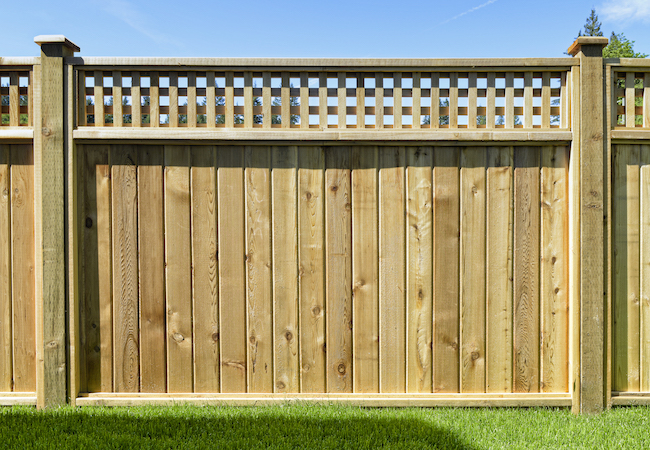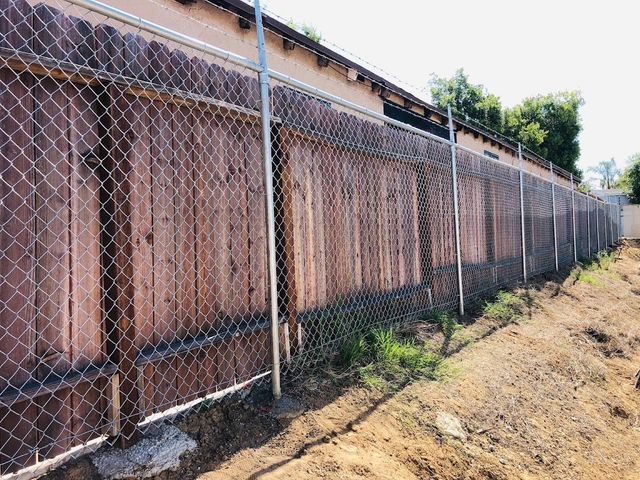Featured

When setting up a fence, selecting the appropriate material is key to stabilizing capability, visual appeals, and spending plan. Timber, vinyl, and light weight aluminum are among one of the most frequently picked secure fencing products, each with its disadvantages and staminas. This guide discovers the advantages and disadvantages of these alternatives to assist you make an educated choice.

Timber Fence. Pros:. All-natural Beauty: Timber's timeless charm can boost any kind of building with its warm and traditional look. Adjustable: You can repaint, stain, or sculpt timber to fit your style preferences. Inexpensive: Timber fencing is initially extra economical contrasted to some various other products. Eco-friendly: As a renewable energy, timber is naturally degradable and frequently taken into consideration environmentally friendly. Cons:. Maintenance-Intensive: Normal sealing, paint, or staining is called for to stop damages from weather condition and insects. Prone to Decay: Without proper care, timber can rot, warp, or crack gradually. Much shorter Life-span: Typically, wood fencings last 10-15 years, relying on the kind of wood and maintenance. Wood is a wonderful option for those who value appearances and want to buy regular maintenance to protect its look and toughness.
Plastic Fence. Pros:. Low Upkeep: Vinyl requires minimal treatment-- just periodic cleansing with soap and water. Climate Resistant: It doesn't warp, rot, or catch insect damage, making it very sturdy in numerous climates. Long life: Vinyl fences can last 20-30 years with little to no repair work. Layout Variety: Available in a large range of designs, shades, and appearances, including wood-like looks. Disadvantages:. Higher First Cost: Plastic fences are a lot more pricey in advance compared to wood. Susceptability to Cold: In exceptionally winter, vinyl can come to be brittle and susceptible to cracking. Limited Repair Options: Matching replacement panels can be challenging if damage happens. Vinyl fencing is ideal for home owners looking for a long-lasting, low-maintenance service that offers modern versatility.

Light Weight Aluminum Fencing. Pros:. Rust-Proof: Aluminum withstands rust, making it an outstanding option for moist or wet atmospheres. Long lasting: In spite of being lightweight, light weight aluminum is solid and can withstand extreme weather. Low Upkeep: It calls for very little upkeep, commonly just periodic cleansing. Long Lifespan: Aluminum fences can last decades without significant wear and tear. Stylish Layout: Usually utilized for ornamental purposes, light weight aluminum fencing includes a streamlined, advanced appearance to homes. Disadvantages:. High First Investment: Light weight aluminum fencings are among the more expensive choices on the market. Less Privacy: The open layouts typical with light weight aluminum secure fencing don't supply much personal privacy. Susceptible to Damage: While sturdy, light weight aluminum can damage if struck with enough pressure. Light weight aluminum is an exceptional selection for house owners focusing on looks and durability without requiring much maintenance.
Making Your Choice. When making a decision in between aluminum, vinyl, or wood secure fencing, consider your priorities:
Timber matches those that appreciate an all-natural appearance and don't mind placing in upkeep initiative. Plastic is the most effective option for those seeking a low-maintenance, weather-resistant option. Light weight aluminum uses streamlined design and long-lasting resilience but might do not have privacy. By meticulously examining these materials' functions, you can pick a fence that matches your building while satisfying your aesthetic and practical needs.
Latest Posts
Montclare Auto Repair: Your Reliable Expert for Professional Engine & Brake Work
Published Apr 20, 25
2 min read
Financing Your Hyundai with Ron Marhofer Hyundai of Cuyahoga Falls
Published Apr 20, 25
1 min read
Making the Most of Your WyHy Bank Account
Published Apr 20, 25
1 min read
More
Latest Posts
Montclare Auto Repair: Your Reliable Expert for Professional Engine & Brake Work
Published Apr 20, 25
2 min read
Financing Your Hyundai with Ron Marhofer Hyundai of Cuyahoga Falls
Published Apr 20, 25
1 min read
Making the Most of Your WyHy Bank Account
Published Apr 20, 25
1 min read